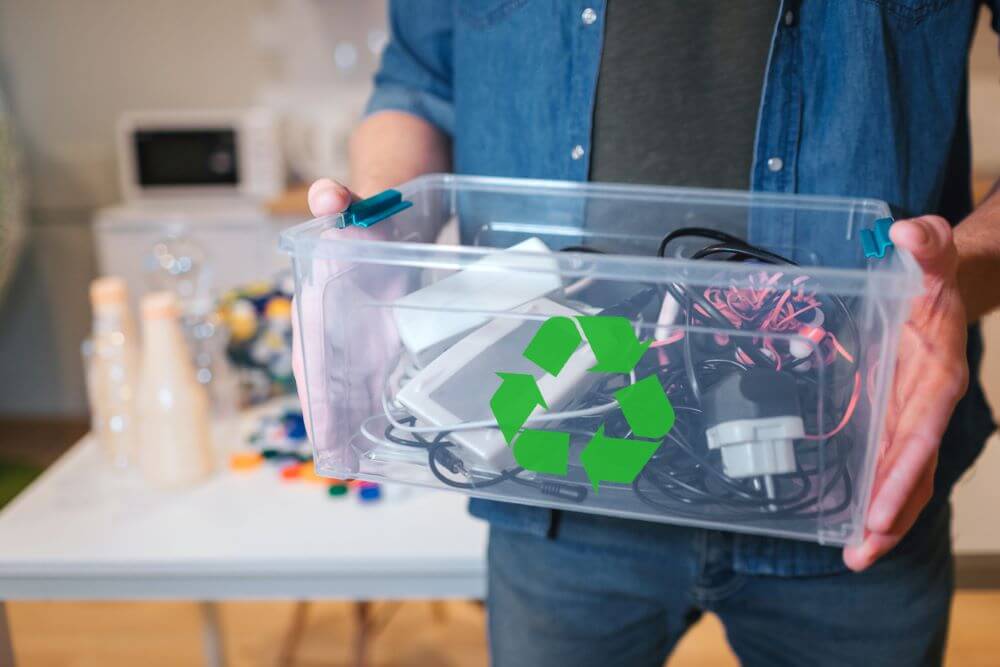Your iPhone is ancient, your laptop is malfunctioning, and your tablet is due for an upgrade. Of course, there comes a time for everyone to toss their old tech and level up to the latest version. But before trashing your old tech, make sure you don’t leave your personal information out there for the taking.
Recycling old tech correctly is essential considering the automatic logins and banking information that any mildly savvy cybercriminal could extract from your device. The improper disposal of smartphones and computers is one of the most common ways for a nefarious character to access sensitive information that can lead to identity theft.
Verizon’s recent Data Breach Investigations Report detailed more than 1,000 identity theft cases in one year that resulted from unauthorized access to a mobile device. A recent data breach report by the Identity Theft Resource Center backs that up, highlighting device theft and the improper disposal of electronic devices as the cause of many identity theft cases in 2019.
At issue is the fact that many of us believe that just logging off and deleting files is enough to wipe clean whatever we have stored on our device. But the reality is that things like photos, videos or personal documents likely remain long after being simply deleted. The last thing anyone wants is their passwords, account numbers, private images and the like winding up in the wrong hands.
So, before you dispose of, donate or recycle that smartphone or MacBook, consider these tips so that you can help prevent any illicit data recovery.
- Consult your device’s user manual or check for online FAQs for factory reset directions. This can be done on laptops, tablets, smartphones or wearable tech.
- Consider using a disk-cleaning software, which can delete your data and then wipe the information off your hard drive entirely, according to the Department of Homeland Security’s Cybersecurity & Infrastructure Security Agency.
- Purchase an external drive or use a cloud-based service to back up your files. This can help keep sensitive data off local hard drives and do more accessible work of disposing of your old electronics without worrying about lost data.
- Secure an identity theft protection provider, so you know you can be alerted about suspicious activity involving your personal data whether via a disposed electronic or another way.
Note that your old device doesn’t necessarily need to be trashed but can be donated or recycled. Local governments are increasingly hosting e-cycling initiatives that keep electronics out of landfills and ensure that devices are purged of all user data. Search online for e-cycling centers near you before disposing of your electronics, including IoT devices and medical devices.
Finally, many device manufacturers accept old devices to be refurbished or recycled and can provide a credit to the consumer toward a new device. Some even take a device from any manufacturer for recycling. Check with the manufacturer to see if they offer a recycling program that might also help you secure a brand-new upgrade.











/https://specials-images.forbesimg.com/imageserve/5f775f4e495853e357989e9c/0x0.jpg)

